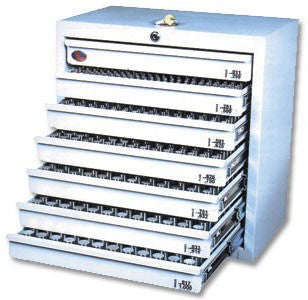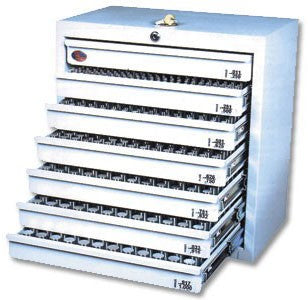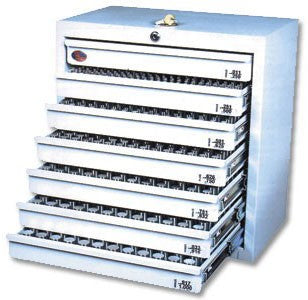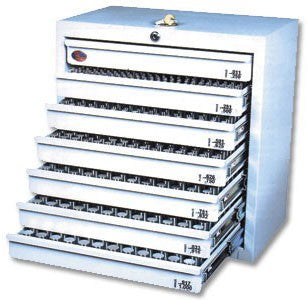Gages
-
API Gages
- American Mining Macaroni Tubing
- API Regular Rotary Shoulder Connection
- Buttress Thread Casing
- External Upset EUE/EUT
- FH - Full Hole - Rotary Shouldered Connection
- Hughes H90 Non Preferred Rotary Shouldered Connection
- Hughes Xtra Hole
- IF - Internal Flush - Rotary Shouldered Connection
- IJ- Integral Joint
- Line Pipe
- Long Casing - LCSG
- NC Connections - Rotary Shoulder Connection
- Non-Upset Tubing - NUE/NUT
- P.A.C - Non Preferred Rotary Shouldered Connection
- Short Casing
- Sucker Rod and Polished Rod Connection
- British Thread Plug Gages
- British Thread Ring Gages
- Cylindrical Plug Gages
- Cylindrical Ring Gages
- Gage Pin Sets
-
Thread Plug Gages
- ACME Thread Plug Gages
- ACME Thread Set Plug Gages
- ANPT Thread Plug Gages
- Flexible Hole Location Plug Gages
- Helical Coil Thread Plug Gages (STI)
- Reversible Thread Plug Gages
- Reversible Trilock Thread Plug Gages
- Straight Pipe Thread Plug Gages
- Taperpipe Plug Gages
- Taperlock Thread Plug Gages
- Thread Measuring Wires
- Truncated Setting Plug Gages
- Pg Conduit Thread Plug Gages
- Miniature Screw Thread Plug Gages
- Thread Ring Gages
- Variable Thread Gages
Calibration
- Dimensional Calibration
- Electronic Calibration
- Field Service Calibration
- Fiber Optic Calibration
- Hand Tool Repair
- Hard Gage Calibration
- Life Sciences Calibration
- Pressure Calibration
- Vacuum Calibration
- RF Electronics Calibration
- Temperature Calibration
- Humidity Calibration
- Torque Calibration
- Mass Calibration
- ON SITE FIELD SERVICES
- Gage Calibration FAQs
- WESTport ISO Accreditations
- Useful Resources
Hardness Testing
Taps and dies
- Blue Print Specials
-
Taps
- ACME Taps - Special
- Extension Taps - Special
- Extension Pipe Taps - Special
- Forming Taps
- Long Series - Special Taps
- Nut Taps - Special
- Pipe Taps - Special
- Popular Special Taps and Dies (Inches)
- Popular Special Taps and Dies (Metric)
- Short Series - Special Taps
- Spiral Flute Tandems - Special
- Spiral Flute Taps - Special
- Straight Flute Tandems Taps - Special
- Tap Drill Sizes,Inch
- Tap Drill Sizes,Metric
- Thread Mills, Carbide Helical UN
- Thread Mills, Carbide Helical Metric
- Thread Mills, Helical Metric/NPT and NPTF
- Dies
- Tables For Tap Dimensions
- Problem Solver
- Selecting Taps
- Tapping Hints
- ISO Accreditations
- Useful Resources
Measuring tools
Micrometer Masters

Micrometer Masters
Regular price
$0.00
Sale
- 1/2"-6.00" diameter in 1/2" increments
- 12.5-150mm diameter in 12.5mm increments
- Case hardened, stabilized, ground and lapped to ±.0001" or ±.0025mm
Model 16 1E (English) & Model 16 1M (Metric)
- 1.00"-6.00" diameter in 1.00" increments
- 25-150mm diameter in 25.0mm increments
- Case hardened, stabilized, ground and lapped to ±.0001" or ±.0025mm
| Part# | Micrometer Masters |
Micrometer masters are used to calibrate and set micrometers
The master is superior to gage block calibration because they do not require block stacks and therefore it is much faster to inspect the linear range of the tool. In addition they indicate wear on the micrometer anvil because it replicates how the micrometer is used.
Micrometers like any other piece of measuring equipment need to be calibrated on a regular cycle. This can be accomplished with the use of gage blocks but unfortunately this practice can be hard on the gage block surface. It will also negatively affect the wringing ability prematurely and requires significant operator skills to become proficient. Gage blocks can also produce errors in calibrating micrometers due to a flat surface versus a diameter. This is typically what is being measured.
Micrometer masters are extremely useful being fixed in place and simulating the parts being checked. Model 1E and 1M for one-inch micrometers, for example, has two (2) odd steps, one at .512 and the other at .762. These steps allow you to check the micrometer at 90 and 180 degrees from the fixed anvil respectfully thereby checking the parallelism of the anvils.
| part | Micrometer Masters |

Gages
-
API Gages
- American Mining Macaroni Tubing
- API Regular Rotary Shoulder Connection
- Buttress Thread Casing
- External Upset EUE/EUT
- FH - Full Hole - Rotary Shouldered Connection
- Hughes H90 Non Preferred Rotary Shouldered Connection
- Hughes Xtra Hole
- IF - Internal Flush - Rotary Shouldered Connection
- IJ- Integral Joint
- Line Pipe
- Long Casing - LCSG
- NC Connections - Rotary Shoulder Connection
- Non-Upset Tubing - NUE/NUT
- P.A.C - Non Preferred Rotary Shouldered Connection
- Short Casing
- Sucker Rod and Polished Rod Connection
- British Thread Plug Gages
- British Thread Ring Gages
- Cylindrical Plug Gages
- Cylindrical Ring Gages
- Gage Pin Sets
-
Thread Plug Gages
- ACME Thread Plug Gages
- ACME Thread Set Plug Gages
- ANPT Thread Plug Gages
- Flexible Hole Location Plug Gages
- Helical Coil Thread Plug Gages (STI)
- Reversible Thread Plug Gages
- Reversible Trilock Thread Plug Gages
- Straight Pipe Thread Plug Gages
- Taperpipe Plug Gages
- Taperlock Thread Plug Gages
- Thread Measuring Wires
- Truncated Setting Plug Gages
- Pg Conduit Thread Plug Gages
- Miniature Screw Thread Plug Gages
- Thread Ring Gages
- Variable Thread Gages
Calibration
- Dimensional Calibration
- Electronic Calibration
- Field Service Calibration
- Fiber Optic Calibration
- Hand Tool Repair
- Hard Gage Calibration
- Life Sciences Calibration
- Pressure Calibration
- Vacuum Calibration
- RF Electronics Calibration
- Temperature Calibration
- Humidity Calibration
- Torque Calibration
- Mass Calibration
- ON SITE FIELD SERVICES
- Gage Calibration FAQs
- WESTport ISO Accreditations
- Useful Resources
Hardness Testing
Taps and dies
- Blue Print Specials
-
Taps
- ACME Taps - Special
- Extension Taps - Special
- Extension Pipe Taps - Special
- Forming Taps
- Long Series - Special Taps
- Nut Taps - Special
- Pipe Taps - Special
- Popular Special Taps and Dies (Inches)
- Popular Special Taps and Dies (Metric)
- Short Series - Special Taps
- Spiral Flute Tandems - Special
- Spiral Flute Taps - Special
- Straight Flute Tandems Taps - Special
- Tap Drill Sizes,Inch
- Tap Drill Sizes,Metric
- Thread Mills, Carbide Helical UN
- Thread Mills, Carbide Helical Metric
- Thread Mills, Helical Metric/NPT and NPTF
- Dies
- Tables For Tap Dimensions
- Problem Solver
- Selecting Taps
- Tapping Hints
- ISO Accreditations
- Useful Resources








